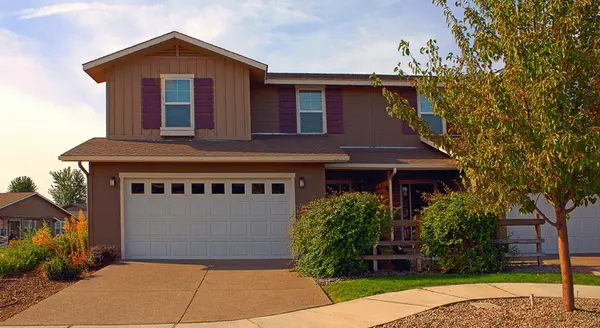
Sell or Rent: What's the Best Move for Your Home?
When it’s time to move, deciding what to do with your current house can be a major decision. Increasingly, many homeowners are considering renting their property instead of selling it. According to recent Zillow data, two-thirds (66%) of sellers thought about renting their home before listing it, with nearly a third (28%) giving serious consideration to the idea. This marks a rise from 2021, when less than half (47%) of sellers entertained the possibility. Clearly, the trend of renting out homes is gaining traction. So, what’s the right move for you— selling your home to fund your next purchase or keeping it as a rental for long-term financial growth? Let’s explore a few key considerations to help guide your decision. Does Your Home Work as a Rental Property? First, evaluate whether your house is suitable for renting. For instance: Location: Is your neighborhood desirable for renters? Maintenance Needs: Are there major repairs required before tenants can move in? Proximity: If you’re moving far away, managing the property could become inconvenient. If these factors make renting impractical, selling your home might be the better option. Are You Prepared for Landlord Responsibilities? Owning a rental property is more than just collecting monthly rent. Being a landlord requires time, effort, and a readiness to address unexpected challenges. You may face middle-of-the-night maintenance calls, repair costs, or even tenant issues like missed payments or lease violations. As Redfin highlights: "Landlords must handle issues like broken pipes, HVAC system failures, and structural damage. Without a financial buffer for these expenses, you could find yourself in a tight spot." Have You Factored in All the Costs? Renting for passive income isn’t always as straightforward as it seems. Bankrate outlines key costs to consider: Mortgage and Taxes: Even if the rent doesn’t fully cover these expenses, you’ll still be responsible for them. Insurance: Landlord insurance, which is about 25% more expensive than standard homeowners insurance, is essential. Repairs and Upkeep: Budget at least 1% of the home’s value annually for maintenance—more if your house is older. Vacancies: Empty rental periods mean no income but continued expenses. Property Management: Hiring a property manager can reduce your workload but typically costs around 10% of the monthly rent. Bottom Line In conclusion, deciding whether to sell or rent out your home is a deeply personal choice. Take the time to carefully weigh the advantages and challenges of each option, and seek guidance from professionals to ensure you feel confident and well-informed. Consulting with a trusted real estate agent can provide valuable insights and support as you navigate this important decision.

More Homes, Slower Price Growth: What It Means for Buyers Today
Right now, the housing market is offering more opportunities for buyers than we’ve seen in years. This shift could be a game changer if you’re ready to purchase a home. Here’s why: Expanded Options for Buyers The number of homes for sale has significantly increased. According to a recent article from Realtor.com: “In October, there were 29.2% more homes actively for sale on a typical day compared to the same time in 2023. This marks the twelfth consecutive month of annual inventory growth and the highest count since December 2019.” While inventory levels haven’t fully returned to pre-pandemic numbers, this growth is a step in the right direction (see graph below). With an increased number of homes for sale, you now have more options than before. As Hannah Jones, Senior Economic Research Analyst at Realtor.com, puts it: “While still below pre-pandemic levels, the growing supply of homes means buyers have more choices . . .” This gives you a better chance of finding a home that suits your needs. Plus, with more listings available, the buying process may feel less rushed, as reduced competition means you can take your time. Home Price Growth Is Easing When there aren’t many homes for sale, buyers have to compete more fiercely for the ones that are available. That’s what happened a few years ago, and it’s what drove prices up so quickly. But now, the increasing number of homes on the market is causing home price growth to slow down (see graph below): In the past, limited inventory forced buyers to compete intensely, driving up prices at a rapid pace. However, with the current rise in available homes, price growth is beginning to slow down (see graph below). In certain areas, the number of homes for sale has not only returned to normal but even surpassed pre-pandemic levels. This shift is leading to slower or stalled price growth in these markets. As Lance Lambert, Co-Founder of ResiClub, explains: “In general, housing markets where active inventory has returned to pre-pandemic 2019 levels are experiencing softened home price growth or even outright declines from their 2022 peak.” This trend could make it easier to find a home that fits your budget. As Dr. Anju Vajja, Deputy Director at the Federal Housing Finance Agency (FHFA), notes: “For the third consecutive month, U.S. house prices showed little movement . . . relatively flat house prices may improve housing affordability.” But remember, inventory levels and home prices are going to vary by market. However, keep in mind that inventory levels and price trends differ by market. That’s where a knowledgeable real estate agent can be invaluable. They’ll help you navigate local trends and find a home that meets your needs and budget. Bottom Line The increase in available housing options, combined with the slower pace of home price growth, creates a unique opportunity to find a home that aligns perfectly with your lifestyle and budget. This shift in the market means you have more flexibility to explore properties that meet your needs without feeling rushed by intense competition. If you're ready to take advantage of the expanding choices available, don’t hesitate to reach out. I’d be happy to guide you through the process and discuss how these changes can benefit your home search.

What’s Driving Homeowners To Make a Move Today?
In recent years, many homeowners delayed selling their homes to avoid taking on a higher mortgage rate for their next purchase. If that sounds familiar, you’re not alone—it’s been one of the main reasons the housing inventory has remained so low. However, an increasing number of homeowners are realizing they can’t wait any longer. Often, the push to move comes from personal or lifestyle changes. As Redfin puts it: "Some homeowners are opting to bite the bullet and give up their low rate in order to move. Many are selling because of a major life event like a job change or divorce." If you’re weighing your decision to move, consider these common reasons why others are choosing to sell—you might find they resonate with your situation. It’s Time for a Change 🌟 A new job in another city, wanting to be closer to family, or simply craving a fresh start often sparks the need to sell. For example, if you’ve just landed an exciting job opportunity in a different location, putting your current home on the market could be your logical next step. HouseThere’s Not Enough Space 🏡 As life evolves, your home may no longer meet your needs. Whether you’re expecting a baby, need a home office, or want more room for entertaining, upgrading to a larger space can be the solution. Imagine living in a small condo and preparing for a growing family—selling now might be the best way to find the perfect home for this next chapter. Retirement or Downsizing 🪴 On the other hand, some homeowners are looking to downsize. With children moving out, retirement, or just wanting less maintenance, downsizing can free up time and resources to enjoy life. If you’ve retired and are dreaming of a smaller, more manageable space, selling your current home could open the door to that new lifestyle. Relationship Changes 💔💖 Life events like divorce, separation, or marriage often create the need for new living arrangements. If you’ve recently gone through a divorce, selling your shared home could allow you to start fresh in a space that better suits your current needs. Health and Accessibility 🚶♂️ Health concerns, especially those affecting mobility, can make a move essential. A home that once felt perfect might no longer be functional for your lifestyle. If you’re navigating health challenges, selling and moving to an accessible home or assisted living could significantly improve your quality of life. Whatever your reason, these examples show that sometimes moving is the best way to embrace change and set yourself up for a better future. Bottom Line Selling your home isn’t solely about market trends or mortgage rates—it’s also about making a choice that aligns with your lifestyle and sets you up for a brighter future. As *Bankrate* explains: "Choosing the right time to sell your home is a deeply personal decision. It requires careful consideration of several key factors, including both financial and lifestyle aspects. Your future goals and plans should play a major role in guiding that decision." If a significant life event has you considering a move, this could still be a great time to sell. Partner with a trusted real estate expert to guide you through the process smoothly.
Categories
Recent Posts











